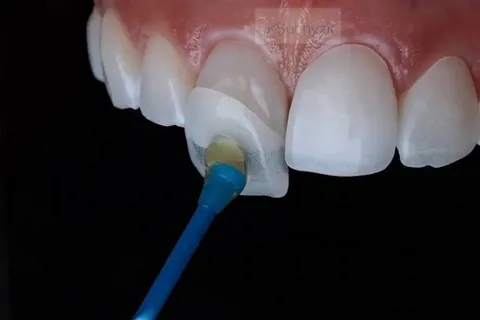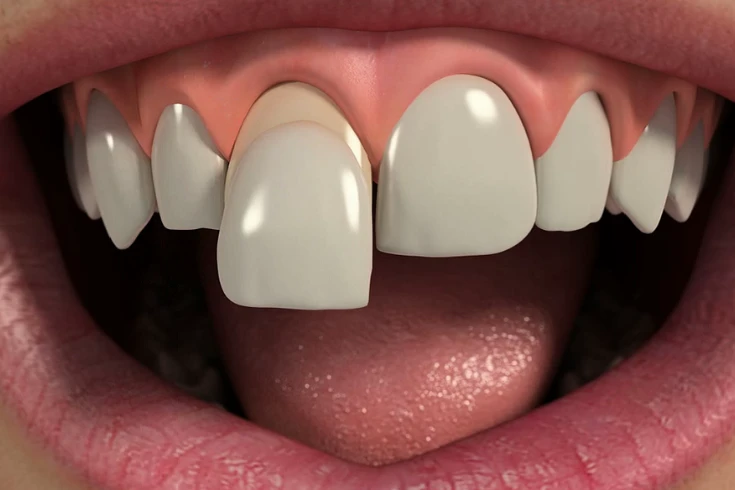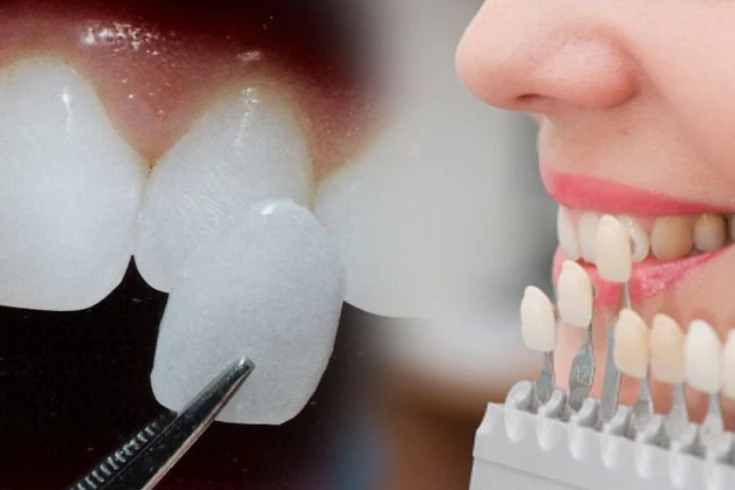Embark on a journey through the intricacies of root canal procedures as we unravel the mysteries behind their duration in our insightful blog. Root canal procedures are vital dental treatments aimed at salvaging severely damaged or infected teeth, but one question often looms large: How long is a root canal procedure carried?
In this comprehensive exploration, we delve deep into the procedure duration of the root canal , shedding light on the various factors that influence its duration. From the initial consultation to the final restoration, we’ll navigate through each step, providing valuable insights into the time frame of this essential dental treatment. Whether you’re a dental professional seeking to optimize treatment planning or a curious patient eager to understand the process better, join us as we uncover the truths behind root canal procedure time.
Understanding of the Root Canal Procedure
The procedure becomes necessary when the pulp of a tooth becomes infected or damaged. This infection can result from deep decay, repeated dental procedures on the tooth, or a traumatic injury. Without intervention, the infection can lead to severe pain, abscess formation, and even tooth loss.
Root Canal Procedure explained in steps
Contrary to common belief, a root canal procedure is not a marathon session of discomfort. A meticulously executed process aims at saving the natural tooth and alleviating pain instead of replacing it. Here’s a breakdown of the steps involved:
- Diagnosis and Preparation: Before commencing the procedure, your dentist will conduct a thorough examination, which may include X-rays, to assess the extent of the infection. Dentists will give local anesthesia to ensure a pain-free experience for the patient.
- Accessing the Pulp Chamber: Once the tooth is numb, the dentist creates an access opening in the crown to reach the infected pulp chamber and root canals.
- Cleaning and Shaping: Dentist use specialized instruments to remove the infected pulp tissue, clean the canals, and shape them to accommodate the filling material.
- Filling the Canals: After cleaning and shaping, the dentist will fill the canals with a biocompatible material called gutta-percha to seal them and prevent reinfection.
- Restoration: Depending on the extent of the damage, the dentist will place a temporary or permanent filling to seal the access opening. The dentist may recommend crown in some cases, to restore the tooth’s strength and functionality.
Check our root canal services and schedule and appointment with our experienced dentists.
What are the benefits of having root canal procedure?
Root canal is very beneficiary as it helps to save the tooth from being extracted. Besides, these there are also various advantages of having root canal. Some of the benefits of having root canal are:
- Relief from pain: Root canal therapy effectively alleviates the severe pain caused by infected or inflamed pulp within a tooth. Once the infection is treated, the pain usually subsides.
- Preservation of Natural Tooth: Unlike extraction, a root canal allows you to retain your natural tooth. Keeping your natural teeth helps maintain your smile, facial structure, and the alignment of surrounding teeth.
- Efficient Chewing and Biting: Restored teeth with a root canal can withstand normal chewing and biting forces, allowing you to eat comfortably without the worry of pain or sensitivity.
- Aesthetic Benefits: After a root canal, the treated tooth is typically covered with a crown or filling, which restores its appearance and function, ensuring that your smile looks natural and complete.
- Prevention of Tooth Loss: By treating the infection and sealing the tooth, a root canal prevents the need for extraction, which could otherwise lead to tooth loss and the potential need for costly and complex replacements like implants or bridges.
- Infection Control: Root canal therapy removes the source of infection from within the tooth, preventing the spread of bacteria to other teeth or into the jawbone, thereby protecting your oral and overall health.
Decoding the Duration: How Long is a Root Canal Procedure?
The root canal procedure time can vary based on several factors, including the complexity of the case, the tooth’s location, and the extent of infection or damage. But, On average, a standard root canal procedure usually takes about 90 minutes to 2 hours. Additionally, the patient’s responsiveness to anesthesia and the dental team’s efficiency also play significant roles in determining the procedure’s length. This time includes diagnosing the issue, administering anesthesia, performing the root canal, and ensuring the tooth is appropriately sealed. While the thought of spending time in the dentist’s chair might seem daunting, it’s essential to recognize that this period can save a tooth and alleviate discomfort.
The time required for a root canal involves several steps:
- Preparation and Examination: The dentist conducts a thorough examination of the tooth, which typically takes around 10-20 minutes.
- Anesthesia: Local anesthesia is administered to numb the affected tooth and surrounding tissues. This process usually takes about 5-10 minutes.
- Isolation: A dental dam may be placed around the tooth to keep it dry and free of saliva, providing a clean working environment. This step typically takes 5-10 minutes.
- Access and Cleaning: The dentist accesses the tooth’s pulp chamber and root canals to remove infected tissue. This step can take 15-30 minutes.
- Shaping and Irrigation: The canals are shaped and irrigated with antibacterial solutions to disinfect them. This process may take about 15-30 minutes.
- Filling: The dentist use biocompatible material to fill the cleaned canals. This takes around 20-40 minutes.
- Restoration: A temporary or permanent restoration, such as a crown, is placed to protect the tooth. This step may take 15-30 minutes.
What are the factors that Influence Root Canal Procedure Time?
The duration of a root canal procedure can vary depending on several factors. The factors that influence the duration of the procedure are:
- Number of Canals: Teeth can have varying numbers of root canals, with molars typically having more than premolars and front teeth. The more complex the root canal system, the longer the procedure may take.
- Infection Severity: Severe infections may require additional time for thorough cleaning and disinfection of the root canals.
- Patient Cooperation: Patient cooperation, including staying still during the procedure, can influence its duration.
- Advance Technology: Advanced techniques and equipment, such as rotary instruments and digital imaging, have streamlined the root canal process, reducing procedure times in some cases.
What you should Expect During and After the Procedure?
Things to expect during the Root Canal Procedure
There are several things that you need to expect during the root canal procedure. Some of the things that you can expect during the root canal procedure are:
- Anesthesia: The dentist will administer local anesthesia to numb the area around the affected tooth, ensuring the procedure is pain-free.
- Isolation of the Tooth: The dentist use a rubber dam often to keep the tooth dry and free of saliva.
- Access and Cleaning: The dentist drills a small opening in the tooth to access the pulp chamber and root canals. They use specialized tools to remove the infected or inflamed pulp. Then, they clean the canals are thoroughly.
- Shaping the Canals: The dentist shapes the canals to prepare them for filling.
- Filling the Canals: Once cleaned and shaped, the canals are filled with a biocompatible material, usually gutta-percha, to seal them.
- Temporary Filling: A temporary filling is placed on top until a permanent crown or filling is applied.
Things to expect After the Procedure
- Numbness: Expect numbness in the mouth for a few hours after the procedure due to anesthesia.
- Soreness: Mild soreness or discomfort around the treated area is normal and can last for a few days.
- Care Instructions: Follow any post-procedure care instructions provided by your dentist to ensure proper healing.
Conclusion:
FAQ’s
How long does a root canal procedure usually take?
Duration of the procedure can vary depending on factors such as the tooth’s location, the complexity of the case, and the dentist’s expertise. However, on average, the procedure typically takes between 1 to 2 hours to complete.
Why does a root canal procedure take multiple visits?
Although many root canal procedures can be completed in a single visit, some cases may necessitate multiple appointments. Factors such as the extent of infection or the number of canals may prolong the treatment process.
Can the length of this procedure be influenced by the tooth’s location in the mouth?
Yes, the location of the tooth can impact the duration of the procedure. Teeth in certain areas of the mouth may be more challenging to access, requiring more time for careful treatment. Additionally, molars with multiple roots and canals may take longer to treat compared to front teeth with a single root canal.
How can patient cooperation affect the duration of a root canal procedure?
Patient cooperation plays a significant role in the efficiency of the procedure. Movement or anxiety during the treatment can hinder the dentist’s ability to work effectively, potentially prolonging the procedure. Staying relaxed and following the dentist’s instructions can help expedite the process.
Is it possible to estimate the duration of my root canal procedure before treatment?
During the initial consultation, your dentist can give you a general idea of the expected duration for your specific case. However, it’s important to note that providing an exact estimate without examining the tooth and considering individual factors is challenging. Factors such as X-ray results, the severity of infection, and the complexity of the procedure will influence this estimate.





